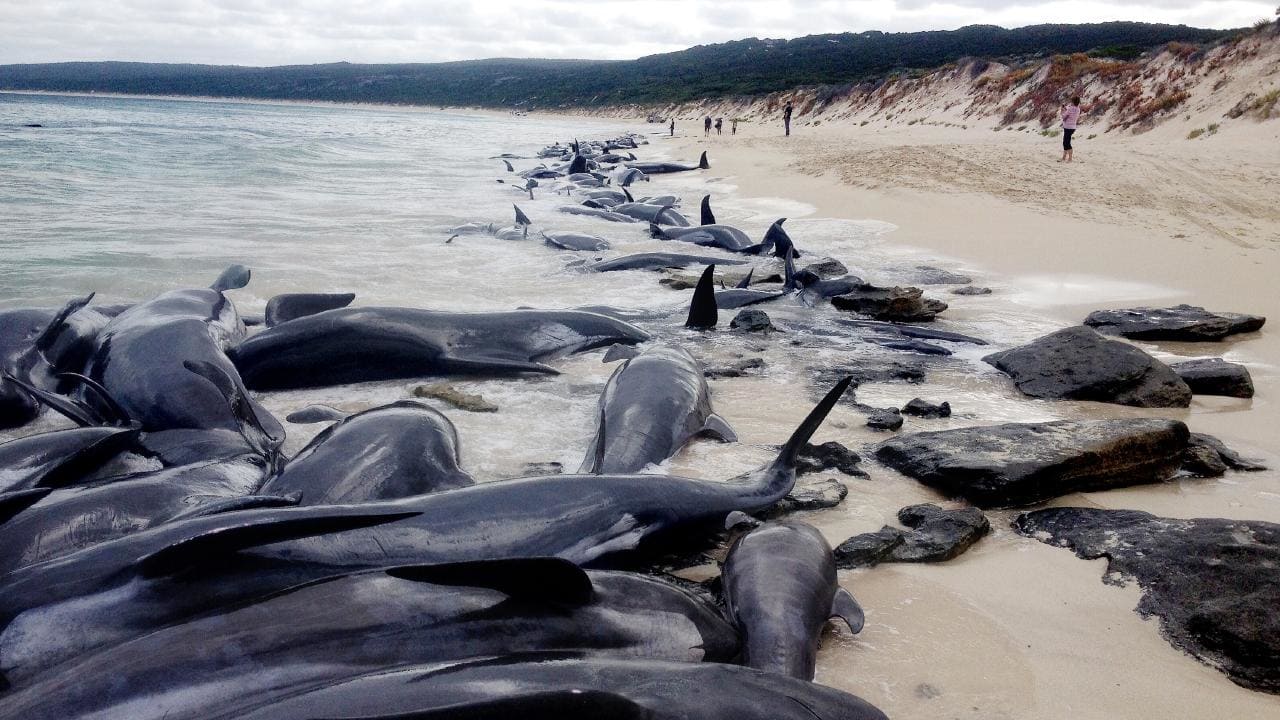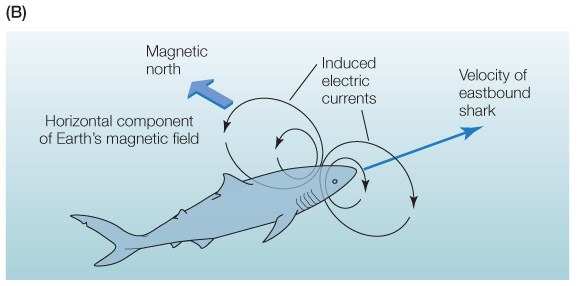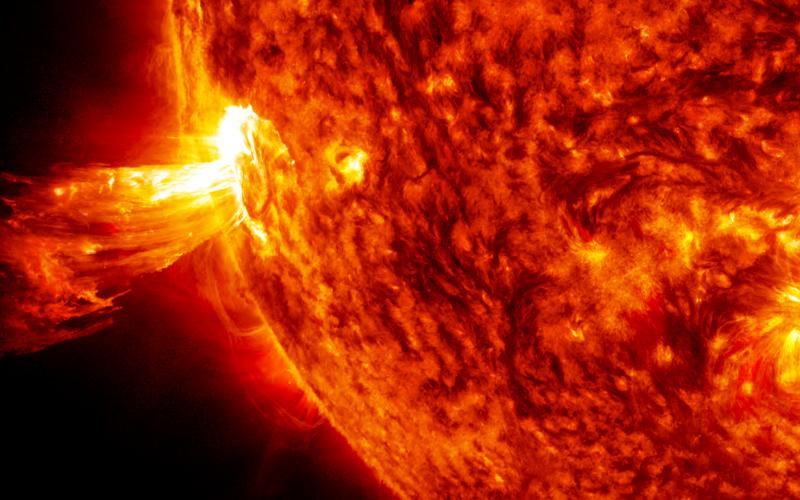 Did you know that gray whales travel around 10,000 to 12,000 miles a year?
Did you know that gray whales travel around 10,000 to 12,000 miles a year?
Starting off in Mexico, where they mate or birth calves, they then head to the Arctic to feed. Finally, they return to Mexico, completing one of the longest known animal migration trajectories with impressive precision.
But how do these whales know where to go? How do they travel for so long and end up in the exact same locations, every time?
Earth's Magnetic Field: A Gray Whale’s Compass?
 Because whales do not have many visual markers in the ocean, scientists believe their ability to find the direction may have to do with Earth’s magnetic field.
Because whales do not have many visual markers in the ocean, scientists believe their ability to find the direction may have to do with Earth’s magnetic field.
Many other animals that travel long distances are guided by magnetic cues – in laboratory experiments, animals have been put into boxes and the surrounding magnetic field changed to see if the species uses magnetic navigation. However, it would be impossible to test this with whales, considering how large they are.
Sadly, clusters of gray whales are sometimes found stranded on the shore, a phenomenon known as beaching. Whales get beached for many reasons: old age, disease, or confusion in unknown territory as they seek out prey or better breathing conditions in shallow water.
The Solar Storms Theory
Jesse Granger, a biophysicist at Duke University, already knew of a relationship between solar storms and stranding. Solar storms send out a blast of positive particles, changing Earth’s magnetic field. So, Granger reviewed many years of whale stranding data and discovered that the rate of stranding more than doubled on days with high sunspot count (which leads to solar flares).
 Next, she set out to determine if the magnetic field changes were responsible for transmitting incorrect navigational information, or whether they were impairing the whales’ senses in some way.
Next, she set out to determine if the magnetic field changes were responsible for transmitting incorrect navigational information, or whether they were impairing the whales’ senses in some way.
After analysis, she found that strandings quadrupled on days of high radio-frequency radiation, which solar storms cause. This radio-frequency noise alters the whales’ sensors and affects their ability to determine where they are.
Of course, there are also many other reasons for stranding, like man-made radio waves, but Granger’s in-depth research suggests a strong correlation between whales and their use of magnetic fields for navigation.
Granger is studying humpback whales next to see if solar storms affect them too. Researchers around the world are joining in, trying to unravel the fascinating mystery of how animals embark on such great migration journeys.
Sources: NYTimes, The Atlantic, CNN, whalestaildepoebay.com











